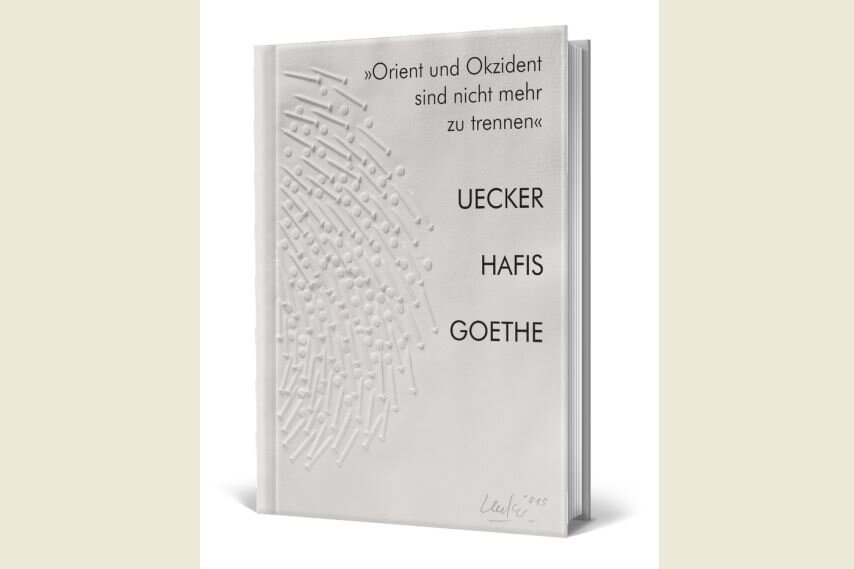Book tracing Hafez influence on Goethe, Uecker introduced at Frankfurt fair

TEHRAN – A book studying Persian poet Hafez’s influence on German poet Goethe and his fellow artist Gunther Uecker 200 years later was introduced in a special session at the Frankfurt Book Fair on Saturday.
Published in German by the Goethe Museum Dusseldorf in 2020, the book “Orient und Okzident Sind Nicht Mehr zu Trennen: Uecker, Hafis, Goethe” (“Orient and Occident Can No Longer Be Separated: Uecker, Hafez, Goethe”) has been written by Barbara von Steingießer.
A group of German and Iranian literati and artists attended the session that took place at Iran’s pavilion at the Frankfurt Book Fair.
The session was organized by the Iran Book and Literature House and Islamic Culture and Relations Organization in collaboration with the Goethe Museum in Dusseldorf.
“Poetry can be so powerful that it almost inevitably inspires other artists to create their own work, across geographical, historical and cultural boundaries,” says an introduction to the book.
“When Gunther Uecker says, ‘As soon as I read, I also have to paint’ and Goethe explains, ‘I had to react productively because otherwise I would not have been able to stand before the mighty apparition’, both refer to the same work.
“Both the Weimar classic and the contemporary artist could not escape the creative energy of the poems from the Divan of the Persian poet Hafez from the 14th century. Rather, one and then the other got into a creative frenzy through reading. This is how the West-Eastern Divan, Goethe’s largest collection of poems, and 200 years later Uecker’s homage to Hafez, a cycle of 42 prints, came into existence.
“Inspired by the wealth of images in the over 650-year-old poems of the Persian poet, Uecker brings his sweeping handwriting together with luminous paintings in a spirited dance.”
Since 2016, Sculptor and op artist Uecker has exhibited his works in an exhibition under the title “Tribute to Hafez”, traveling through all parts of Iran.
The exhibition renamed “Orient and Occident Can No Longer Be Separated: Uecker, Hafez, Goethe” was organized at the Goethe Museum Dusseldorf in 2020.
“Tribute to Hafez” has been inspired by the ghazals of Persian poet Hafez. Uecker has created a collection of graphical works, in which the ghazals are transformed into colors and the sound of the poems into written images.
This method to translate spoken language into pictorial expressions has characterized the artist’s oeuvre since the 1970s.
Uecker is a member of the ZERO movement, best known for his signature use of nails arranged into tactile, sculptural paintings.
His oeuvre includes paintings, art objects and installations as well as stage designs and films. He is mainly interested in the Eastern European avant-garde of the 1920s and 1930s, but he is likewise fascinated by Asian cultures and their ideas.
Uecker’s works can be seen in collections and at large fairs in both the West and the East. His artistic creativity reached a climax in 2000 with the prayer room he designed for the rebuilt Reichstag building in Berlin.
Photo: A copy of the book “Orient und Okzident Sind Nicht Mehr zu Trennen: Uecker, Hafis, Goethe”.
MMS/YAW

Leave a Comment